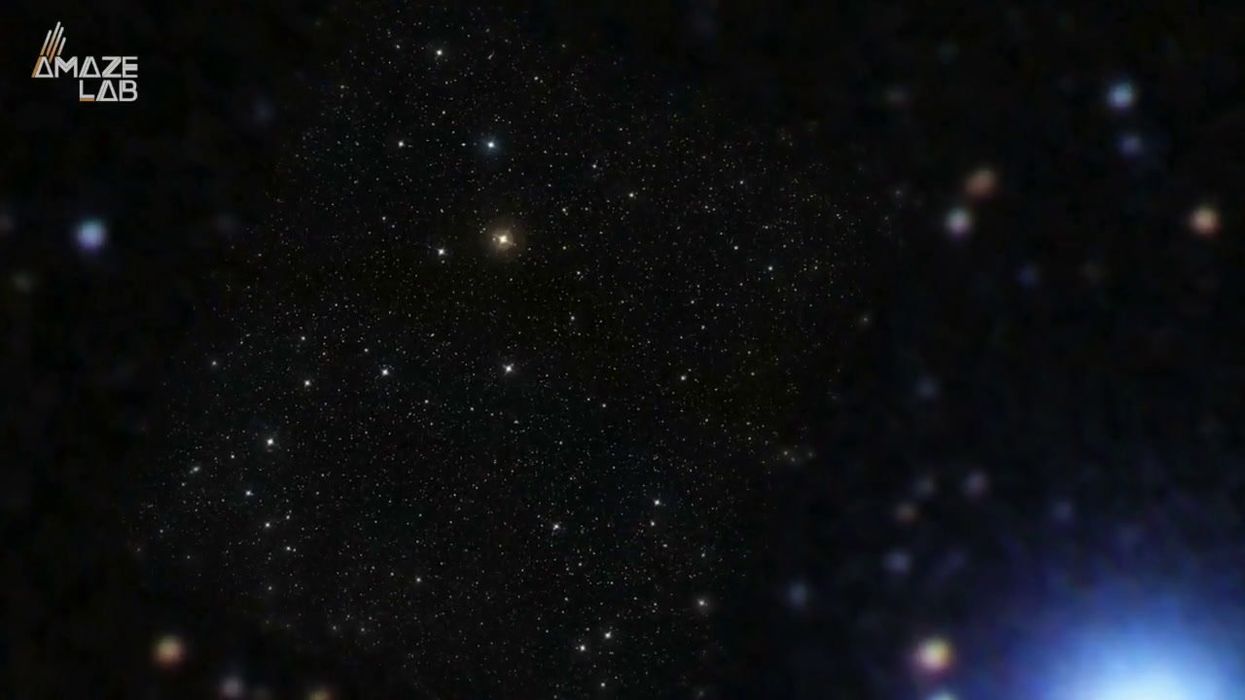Harry Fletcher
Jun 05, 2023
Astrophysicists Might Finally Know How Fast the Universe Is Expanding
content.jwplatform.com
Every now and then a story comes along which completely changes the way you think about space. For instance, did you know the universe is essentially evaporating right before our eyes?
A new study has been released which focuses on the effect that radiation emitted from objects in the solar system can have a massive impact on quantum fields surrounding them.
It follows on from Stephen Hawking’s theory that black holes lose mass and evaporate over time as an unusual form of radiation takes effect.
Now, astrophysicists Michael Wondrak, Walter van Suijlekom, and Heino Falcke of Radboud University in the Netherlands have stated that this unusual form of radiation is apparent in other objects as well as black holes.
Sign up to our free Indy100 weekly newsletter
In fact, they believe that “Hawking radiation” could be found in objects apparent everywhere in the universe – and it could mean that the universe is slowly evaporating before our very eyes.

"We demonstrate that," Wondrak says in the study published in Physical Review Letters. "In addition to the well-known Hawking radiation, there is also a new form of radiation."
"We show that far beyond a black hole the curvature of space-time plays a big role in creating radiation," van Suijlekom explains. "The particles are already separated there by the tidal forces of the gravitational field."
Essentially, huge objects in the solar system can cause space-time to bend around them. When that happens, it causes enough change in quantum fields to generate particles which have similar properties to Hawking radiation.
Falcke said: "That means that objects without an event horizon, such as the remnants of dead stars and other large objects in the universe, also have this sort of radiation.
"And, after a very long period, that would lead to everything in the universe eventually evaporating, just like black holes. This changes not only our understanding of Hawking radiation but also our view of the universe and its future."
Have your say in our news democracy. Click the upvote icon at the top of the page to help raise this article through the indy100 rankings.
Top 100
The Conversation (0)














